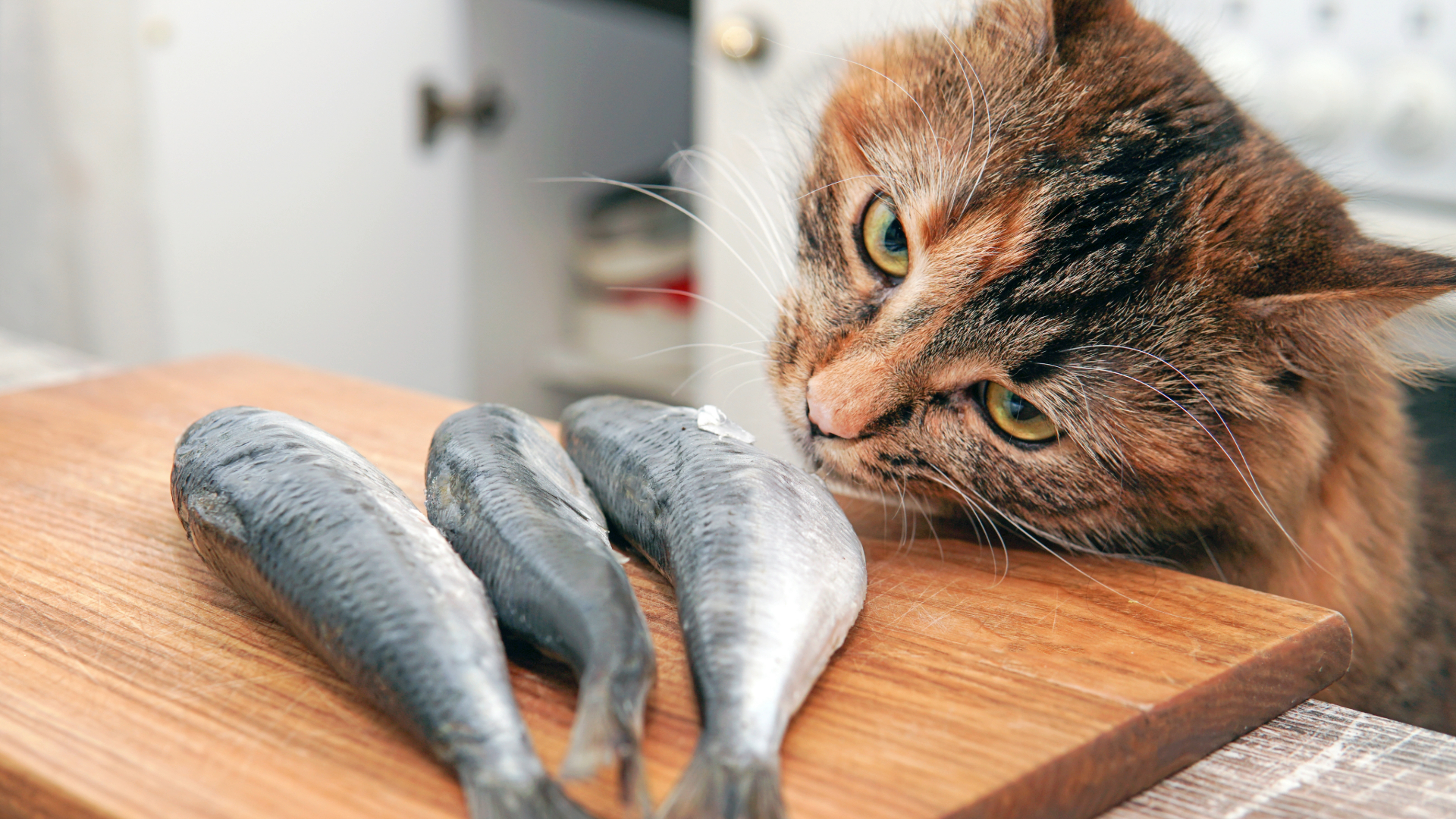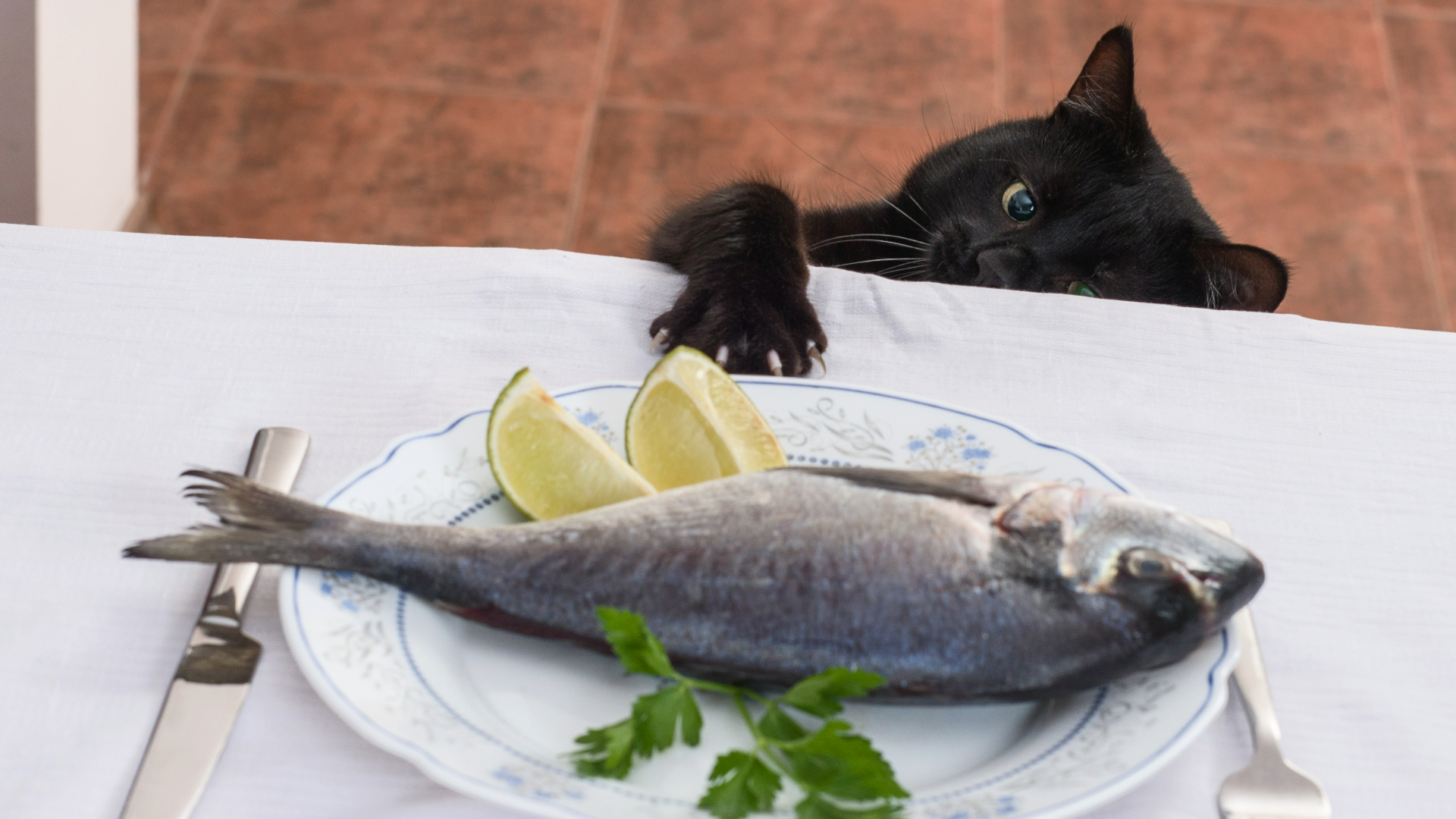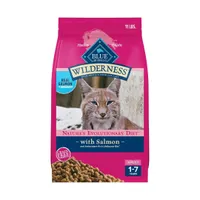Is it healthy for cats to eat fish? Our vet has the answer
An expert explains whether cats can eat fish and what to know before you feed

Fish is a great addition to a healthy human diet, but can your cat eat fish? In this feature, we’ll share the health benefits and risks of feeding fish to your cat, let you know which fish are the best choice for cats, and make sure you’re aware of how to offer it as safely as possible.
Since graduating as a vet in 2011, a large portion of the patients that I’ve treated have been cats. As a cat owner of two myself, cats hold a special place in my heart. I love helping owners care for their feline family members, and the right nutrition is a really important part of that.
If you're trying to choose the right food for your own kitty, you might be feeling a bit overwhelmed – there’s so much information out there. Thankfully, we’ve come up with a handy guide to the best dry cat food, to help you choose the best option for you and your purr-fect pal.
Is it OK for cats to eat fish?
Many fish are safe for cats to eat, but not all, so it’s important to make sure that you’re feeding a cat-safe fish first! Be aware that how the fish is cooked and served will also affect whether it’s suitable for your cat.
However, fish is an excellent source of lean protein and omega-3 fatty acids, and it also contains vitamins and minerals like potassium and magnesium. That means it’s great for giving your cat the protein that they need to maintain their muscles and other soft tissues, without the extra fat that some other meat sources contain.
Omega-3 is essential for overall health, but especially good for joints, skin, and coat health, while magnesium and potassium are needed by muscles throughout the body, including the heart.
One of the risks of feeding your cat fish is the bones—these can become lodged in the mouth, esophagus, or intestine, and sometimes cause damage. Therefore, it’s best to make sure that you remove all bones from the fish before you offer it. Whether it’s shop-bought or freshly caught, it’s important to cook the fish thoroughly, to kill any parasites or bacteria.
Get the best advice, tips and top tech for your beloved Pets
Another simple rule when it comes to serving your cat fish, is to avoid seasonings, cooking fats, and other ingredients. Onions, garlic, and large amounts of salt are toxic to cats, while too much fat can also make them unwell. If you're feeling unsure about which human foods are poisonous to cats, check out our helpful guide.

What fish can cats eat?
As well as preparing fish safely, it’s also important to choose a fish that’s safe for cats. Cats can eat most white fish and salmon, but it’s important to be wary of the risk of high mercury levels.
Fish that are predatory, i.e., eat other fish, are more likely to have higher mercury levels. This includes tuna, mackerel, and swordfish, however, feeding small amounts of these fish infrequently is unlikely to be a concern.
What fish can't cats eat?
There are a few considerations that make certain fish unsafe for cats. The first is high mercury, as previously mentioned. This can cause neurological problems as well as kidney damage, and can sadly be fatal. Thankfully, as long as you stick to cod and salmon for the most part, and limit the amount of other seafood, the risk of mercury poisoning is low.
The second consideration is storage and preservation because many preservation methods involve high salt levels or sunflower oil. Therefore, it’s essential to avoid any fish stored in brine or oil or coated in salt.
Finally, too much oily fish can cause low vitamin E in cats, which is why commercial cat foods that contain fish are supplemented with additional vitamin E. If you want your cat to have the health benefits of oily fish, it’s safest to choose a nutritionally balanced cat food that’s fish based, to make sure they’re getting everything they need.
Blue Buffalo Wilderness Natural High Protein Grain Free Salmon Dry Food for Adult Cats
If you want to feed your cat fish, it's going to be a lot easier buying a ready-made, complete food, like this one like Blue Buffalo. Salmon is the number one ingredient, and the formula is rich in omega-3 to support skin and coat health.
Can I feed my cat canned tuna?
Is tuna good for cats? Canned tuna can be safe for cats in small amounts if it’s tuna in spring water rather than brine or oil. However, tuna should only be given as an occasional treat, because it can contain high levels of mercury, which is toxic in large quantities.
If you're wondering how to make cat treats, we've created a tasty tuna recipe for you to follow at home.
Should I feed fish oil to my cat?
It’s best to speak to your vet before supplementing your cat with anything extra. Fish oil is very beneficial for your cat’s health – both omega-3 and omega-6 are helpful at reducing inflammation, supporting the immune system, and maintaining joint and skin health.
However, if these essential fatty acids are not given in a balanced way, they can be detrimental to your cat’s health. Remember, your cat’s nutritionally balanced and complete cat food will contain all of the nutrients they need, but if you’re concerned they need more, speak to your vet about a supplement.
Fish is a fantastic, healthy source of protein for cats, but it’s not without risks. Thankfully, feeding cod or salmon, ensuring all bones are removed, and avoiding products high in salt or oils can help to reduce the risks to make sure that your cat gets all of the benefits safely.
Want more vet advice? Read: Can cats eat strawberries?, foods that cats should never eat and can cats eat corn?
Dr Hannah Godfrey is a small animal vet who graduated from the Royal Veterinary College in 2011 and began work straight away at a busy mixed practice. Initially, she treated all species, but focussed on small animals from 2014. She has a passion for soft tissue surgery, ultrasound, and canine and feline dentistry, having completed additional training in these areas.


